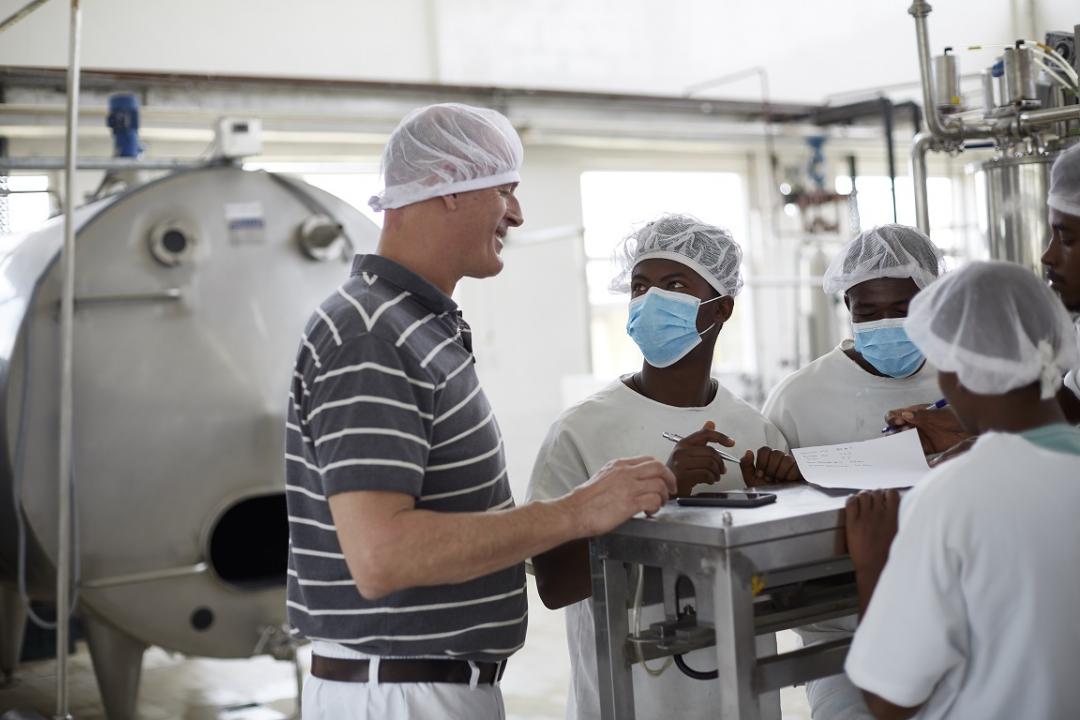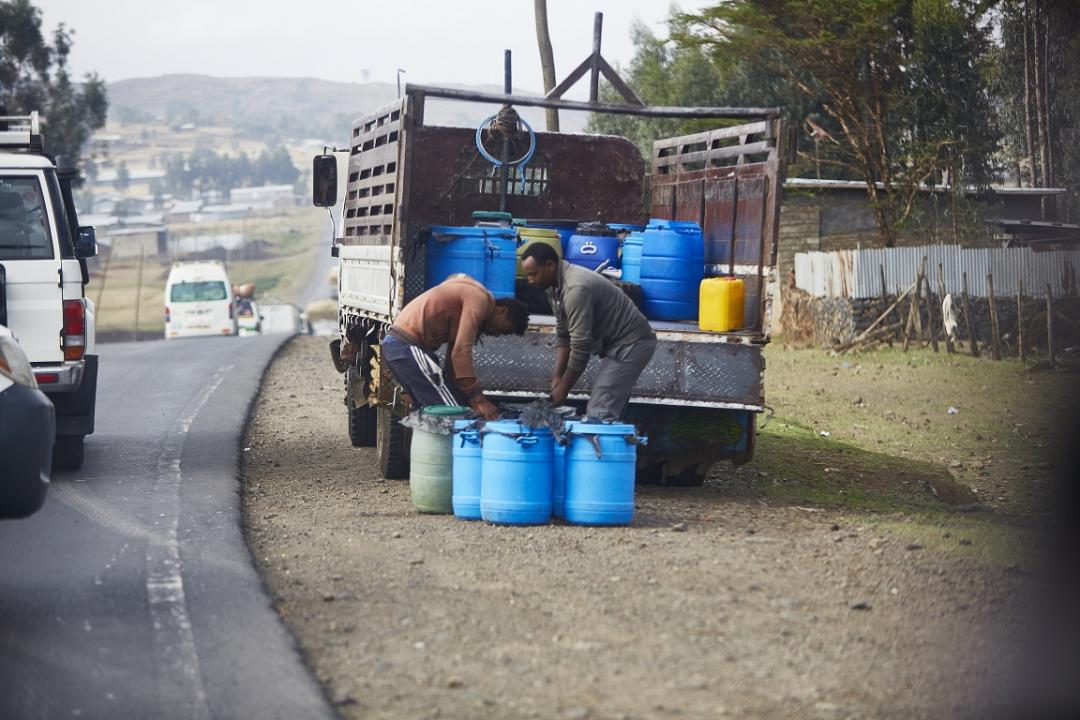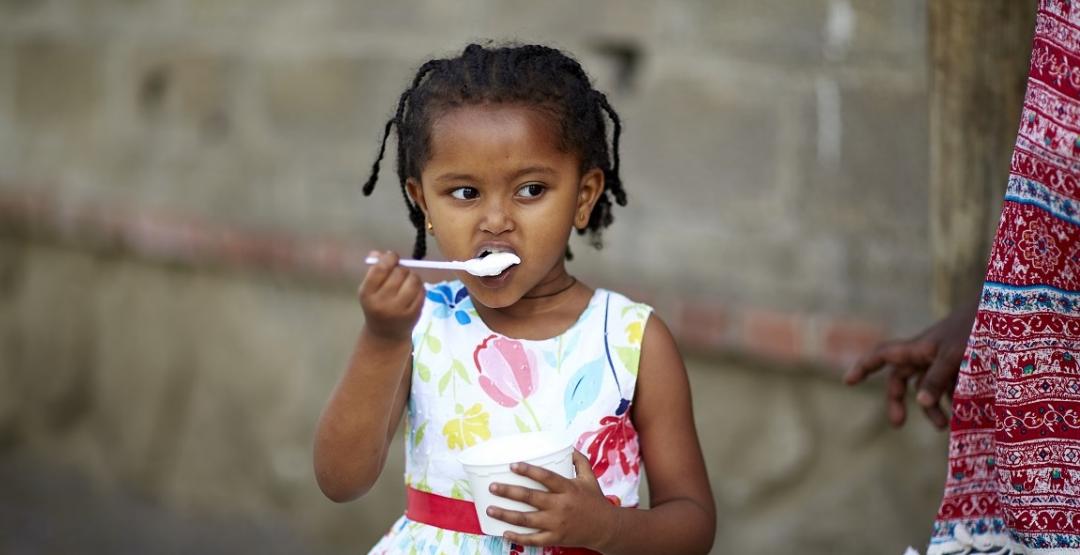Responsible business starts with doing no harm
Ethiopia has more dairy cows than any other African country – an estimated 12 million at the last count. Yet nearly 40% of its children suffer from stunting due to malnutrition, very few of them receiving any nourishment from the cows’ milk.
This situation was the starting point for our first collaborative project to develop a sustainable dairy supply chain in Ethiopia. We learned quickly that, even with all the best intentions in the world, the risk of causing unintentional harm is great. Two things in particular are imperative: a keen understanding of local needs and circumstances and a continuous reflection on our own conduct as a milk-based ingredients business.
The Ethiopian dairy project was the initial collaboration within the GAIN Nordic Partnership, which Arla Foods Ingredients helped found in 2014. Led by the Global Alliance for Improved Nutrition (GAIN), the partnership is a multi-sector platform which aims to build scalable and inclusive business models for nutritious and affordable food in developing countries. The Danish NGO DanChurchAid, the Confederation of Danish Industry and Tetra Pak are other founding partners.
Local partners
No GAIN Nordic project can succeed without the involvement of local partners on the ground. In Ethiopia, this has meant working closely with established dairy companies in the country, not to mention the hundreds of smallholder dairy farmers who deliver the milk. For the dairies and the farmers, the project represented an opportunity to raise the yield and quality of their products and improve revenue in the process.
We can contribute both at farm and dairy level. Being part of a large dairy cooperative, our supply chain starts with the dairy farmers who own our parent company, Arla Foods. So it was only natural for one of our farmers in Denmark to play a role in training 300 Ethiopian champion farmers in aspects of feed management, forage cultivation, animal husbandry and hygiene. The improvement in milk yield and quality has increased farmer incomes by 19%.

Knowledge transfer
Working with Ethiopian dairy companies, our application specialists have supported the formulation of a fortified yoghurt recipe and transferred the necessary processing knowhow for local production. This has included introducing new ingredients such as whey permeate, which extends the locally sourced milk so the dairy can produce more, good-quality yoghurt at an affordable price. Rich in lactose, whey permeate also serves as a source of natural sweetness, reducing the need for added sugar and helping to ensure the yoghurt is agreeable to local tastes.
The intention is that the yoghurt can be brought to market in a format that makes dairy nutrition more widely available to low-income households. In itself, the yoghurt is a small step towards providing children and young mothers with essential nutrition. The facilitation of a dairy supply chain holds further potential, as the improved standard of living for dairy workers and farmers enables them to buy more nutritious food.
Market acceptance
Another outcome is that the Ethiopian Bureau of Standards has approved our approach as a new standard for fortified yoghurt – possibly the first standard of its kind in the world. This is a fantastic achievement and very much down to the skill of our Ethiopian dairy partners, who have shown they can incorporate tiny concentrations of vitamins without destroying them during yoghurt processing.
During 2021, consumer acceptability trials gave us the assurance we needed that the two flavour variants are aligned with local preferences. We had then hoped to take the final steps towards bringing the products to market. So far, the ongoing COVID-19 pandemic and political unrest in Ethiopia have proven to be insurmountable barriers beyond our control. The prospects for market launch remain uncertain.

Image: Arla Foods Ingredients
A model for sharing
However, the efforts of the GAIN Nordic Partnership are by no means wasted. Perhaps the most important result is that we now have a well-documented model that can be used to build sustainable supply chains for affordable, dairy-based nutrition in other parts of the world.
We have already shared the model with the Scale-Up Nutrition (SUN) Business Network, which is currently working on a revised version in collaboration with a dairy in Pakistan. Dairies in other developing countries can gain access to our expertise via the SUN platform.
But the project hasn’t stopped there. Danida Market Development Partnerships (DMDP), a programme operated by Denmark’s development cooperation agency Danida, provided much of the funding for the original project in Ethiopia. Towards the end of 2021, DMDP granted another two years of funding to allow investigation of further possibilities to improve milk utilisation, reduce food waste and develop a greener business model.
New commitments
Since Arla Foods Ingredients’ involvement in Ethiopia began, we have collaborated with GAIN and DanChurchAid in particular on additional projects aimed at developing sustainable food systems. These have required our application specialists to investigate more opportunities to utilise the full nutritional potential of dairy resources and minimise food loss. A concept for a whey-enriched fruit snack made with surplus papaya fruit is one example.
Drawing on experience gained so far, we have shaped a new corporate commitment to responsible business conduct. Here, our first priority is to avoid unintentional negative impacts and only initiate activities when we are sure of their potential to make a long-term positive difference.
The ultimate goal is to create well-documented models that can be scaled up and transferred to other countries, where supply chains for affordable nutrition are a need.
